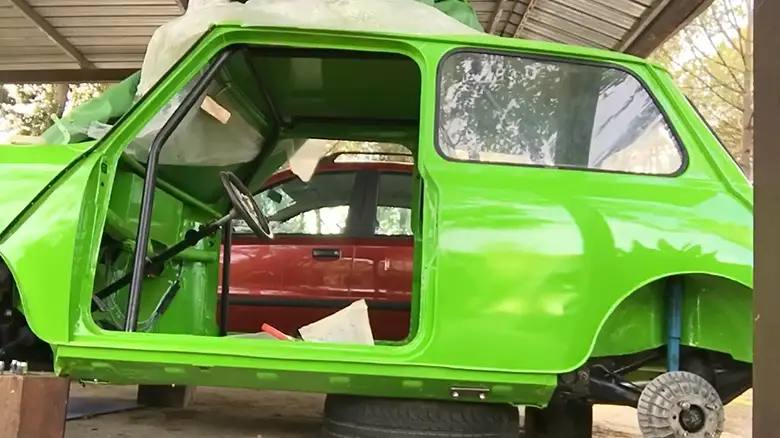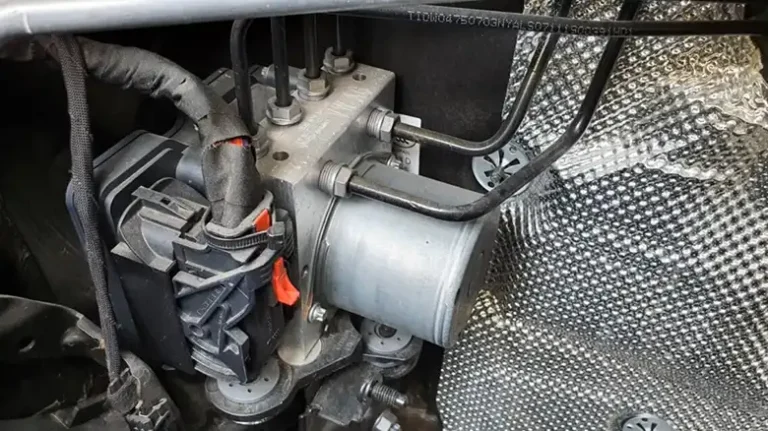Do You Need A Roll Cage For Track Days? A Safety Imperative
When I started driving on race tracks, an important question was whether I needed a roll cage in my car. These events push vehicles and drivers closer to the limit, so safety is crucial. However, a full roll cage is a major modification with pros and cons to weigh.
Initially, I was unsure if a cage was necessary for my experience level. They protect occupants in a roll-over but also add weight and restrict interior space. After talking with other drivers, I realized the need depends on the type of tracking and car preparation.
For beginners doing lower-speed lapping days, a 4-point harness bar may suffice. This provides harness mounting points while minimally impacting the interior. As I gained experience and did higher-speed events, I installed a 6-point roll cage for maximum protection. I also added race seats, harnesses, and other safety gear to complement it.
Based on my experience, carefully evaluate your goals, car, and skill level when considering a cage. Prioritize safety, but balance this with practicality. With prudent preparation, you can enjoy track days thrillingly and securely.

Importance of Safety
When tracking your car, safety should be the top priority. Carefully assess if a roll cage is needed for your experience level, vehicle, and speed. Never compromise safety in pursuit of thrills.
- Safety should always be a top priority when participating in any motorsport, including track days. The potential for accidents is ever-present, and while no one anticipates a mishap, being prepared is key.
- A roll cage is a safety device designed to protect the driver and passengers in the event of a rollover or crash. It provides structural reinforcement to the vehicle, minimizing the risk of injury.
When Is a Roll Cage Necessary?
For beginners, a harness bar may suffice. As you advance to higher speeds, a full cage becomes necessary. Evaluate your goals and skill level to determine if a cage is mandatory.
Vehicle Speed and Performance
The need for a roll cage largely depends on the speed and performance of your vehicle. High-performance cars that can reach significant speeds are more likely to require a roll cage.
Regulations and Track Rules
Different race tracks may have specific rules and regulations regarding the use of roll cages. It’s essential to check with the track you plan to visit to determine if a roll cage is mandatory.

Benefits of Installing a Roll Cage
Installing a roll cage enhances safety at track days. It reinforces your car’s structure, reducing injury risks in accidents, providing peace of mind for high-speed enthusiasts.
Enhanced Safety
The primary benefit of a roll cage is enhanced safety. In the event of a rollover or crash, it can protect occupants from serious injuries.

Structural Reinforcement
A roll cage provides structural reinforcement to the vehicle, making it more resilient to the forces encountered during high-speed driving.
Drawbacks of Roll Cages
Roll cages add weight, affecting car performance and comfort. Their installation may reduce daily drivability, making them a less convenient choice for some track day enthusiasts.
Weight and Comfort
Roll cages add weight to the vehicle, which can affect its performance. Some drivers find roll cages uncomfortable for daily driving due to limited space inside the car.
Making the Decision
Deciding on a roll cage considers your vehicle, style, and risk tolerance. Consult experts, weigh the pros and cons, and choose the safety that suits your track day adventure.
Assessing Your Vehicle and Driving Style
To decide whether you need a roll cage for track days, assess your vehicle’s speed and performance capabilities. Consider your driving style and the level of risk you’re comfortable with.
Consulting with Experts
If you’re uncertain about the need for a roll cage, it’s advisable to consult with experienced drivers or track day organizers. They can provide valuable insights and guidance.
Personal Preference
Ultimately, the decision to install a roll cage is a matter of personal preference and risk tolerance. Some drivers opt for added safety, while others prefer the agility and comfort of their vehicles without a roll cage.
Common Queries
Are roll cages required at all racetracks?
Roll cage requirements vary from one racetrack to another. Some tracks may mandate roll cages for certain types of events or high-speed activities. It’s essential to check with the specific racetrack’s rules and regulations before participating.
Can I install a roll cage in my existing car?
Yes, it’s possible to install a roll cage in an existing car. However, the feasibility and ease of installation can vary depending on the make and model of your vehicle. It’s advisable to consult with a professional or experienced fabricator for proper installation.
Do roll cages affect the handling of the car?
Roll cages can have a noticeable effect on a car’s handling. The added weight and altered weight distribution may impact the vehicle’s balance and responsiveness. Proper installation and setup are crucial to minimize handling changes.
What are the different types of roll cages available?
Roll cages come in various configurations, including full cages, half cages, and bolt-in cages. The choice of roll cage type depends on your specific safety needs and vehicle use.
Are there any alternatives to roll cages for safety?
Some alternatives to roll cages include safety harnesses, bucket seats, and helmets. These safety measures can protect during track days without the structural changes introduced by a roll cage.
What should I do in case of a rollover without a roll cage?
In the absence of a roll cage, it’s crucial to follow safety procedures, such as keeping your hands on the steering wheel, securing your seatbelt, and protecting your head. Seek immediate medical attention after a rollover.
Do roll cages affect insurance premiums?
Installing a roll cage may affect your insurance premiums. It’s advisable to inform your insurance provider about any modifications made to your vehicle, including roll cage installation, to ensure your coverage is appropriate for your needs.
Final Thoughts
The question of whether you need a roll cage for track days depends on several factors, including your vehicle’s speed, track regulations, and personal preference. Safety should always be a top priority, and while a roll cage can provide added protection, it’s essential to weigh the benefits against the potential drawbacks. Making an informed decision will ensure that you can enjoy track days while minimizing risks.
